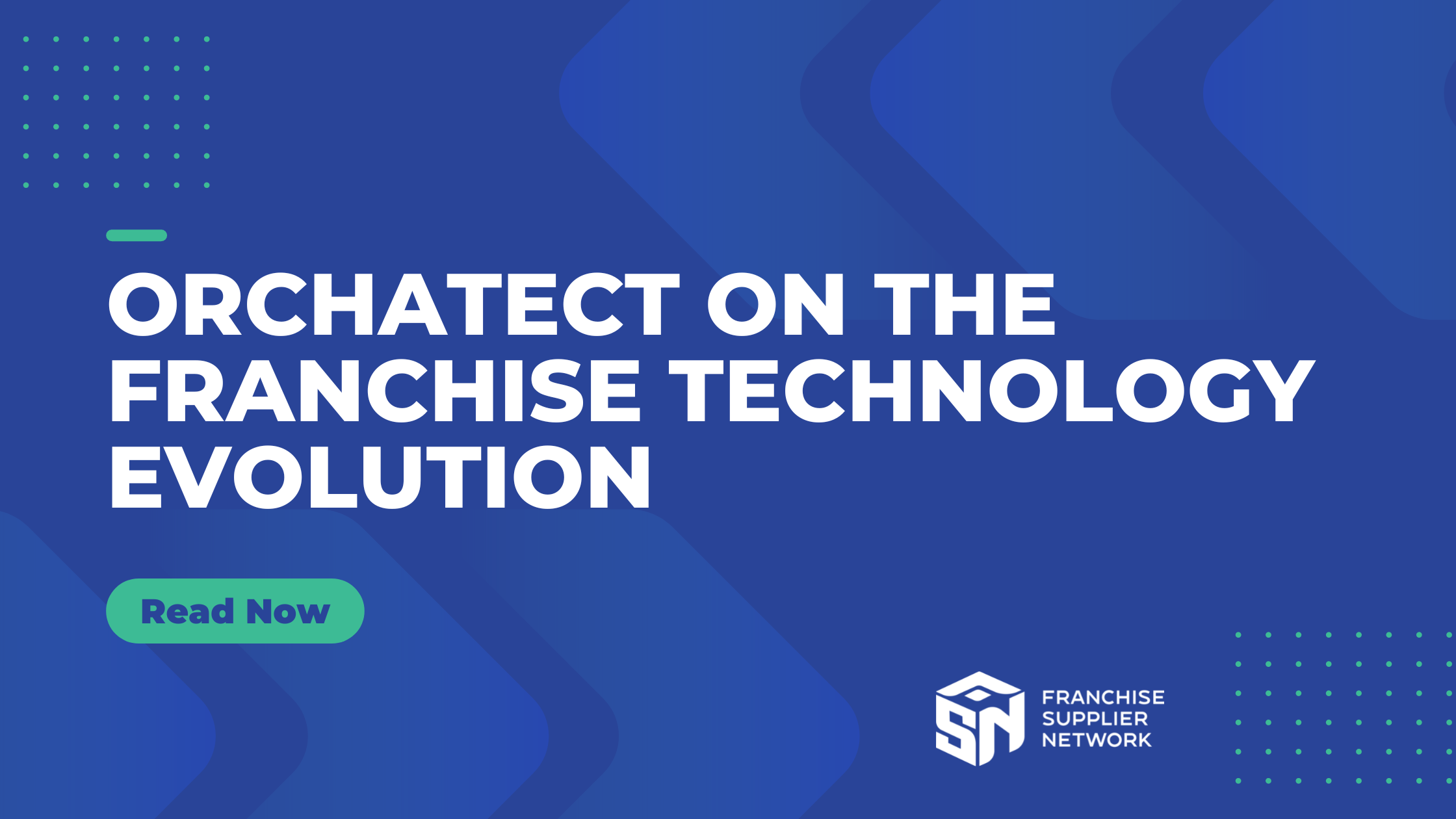Orchatect on Franchise Technology Evolution

The below paper is written by FSN Featured Supplier, Orchatect:
2022 saw an initial movement toward integrated solutions and 2023 onwards we will see brands evaluating their franchise technology stack and long-term plans with a more pronounced strategic focus on consolidated solutions via orchestration. This is not only in line with behavior patterns observed in other business industries but is also following the trend of technology evolution.
Point solutions traditionally are designed with the intent to fix a specific problem that a business faces with the necessary expertise and focus. While these solutions work well for addressing a specific problem the existence of numerous point solutions, maintenance, updates, support and management costs bring with them many additional challenges to brands that impact their ability to grow and scale.
Integrated platforms on the other hand address many of the challenges / concerns present in technology stacks filled with single point solutions. As a single, flexible and customizable platform that provides transparency, control, and accountability the benefits of a centralized integrated platform have significant strategic and financial benefits. Additionally powerful business specific solutions can be built on top of such centralized integrated platforms which function as end-to-end operating system.
Benefits of integrated solutions over point solutions:
Solution Management: Integrated platforms provide a unique customized solution that is very specific to a brand that can consist of different point solutions orchestrated together to address the brand needs. Point solutions on the other hand are only focused on solving a particular problem without looking at the end-to-end business requirements.
Support: As a brand grows and scales it’s franchise technology stack becomes more complex as they need to not only address the many business requirements but also must support their franchises. A technology strategy that revolves around multiple point solutions, to address specific problems, without looking at the overall end-to-end business requirements invariably brings with it challenges and costs associated with setup, configuration, maintenance, troubleshooting etc.
Functionality & Scalability: Integrated platforms are inherently designed to be more flexible to be able to add new functionality and features as brands grow and scale. This flexibility also extends to the ability to upgrade or replace individual components of the tech stack. Point solutions on the hand solve very specific problems and cannot typically add functionality outside their specific solution and are not designed to support multiple integrations. The flexibility provided by integrated
Costs: Vendor management costs, individual subscription costs, training costs, API layer maintenance and support costs all typically increase as the number of point solutions grow. Integrated solutions on the other hand, typically have a better cost structure as they able to pass cost savings and economies of scale to their customers.
As leaders in the management and implementation of the Franchise Tech Stack for brands, using our orchestrated centralized platform, Maestro, we see this significant and inevitable shift happing within the franchise industry as brands look to become more competitive, profitable and increase market share.

